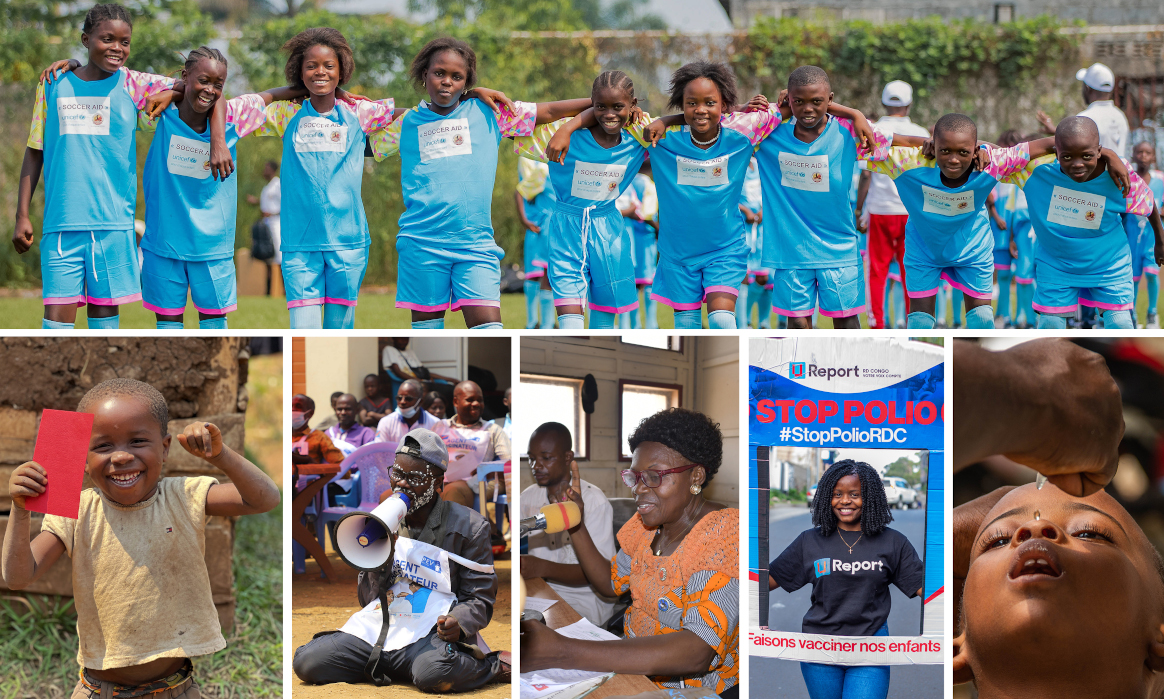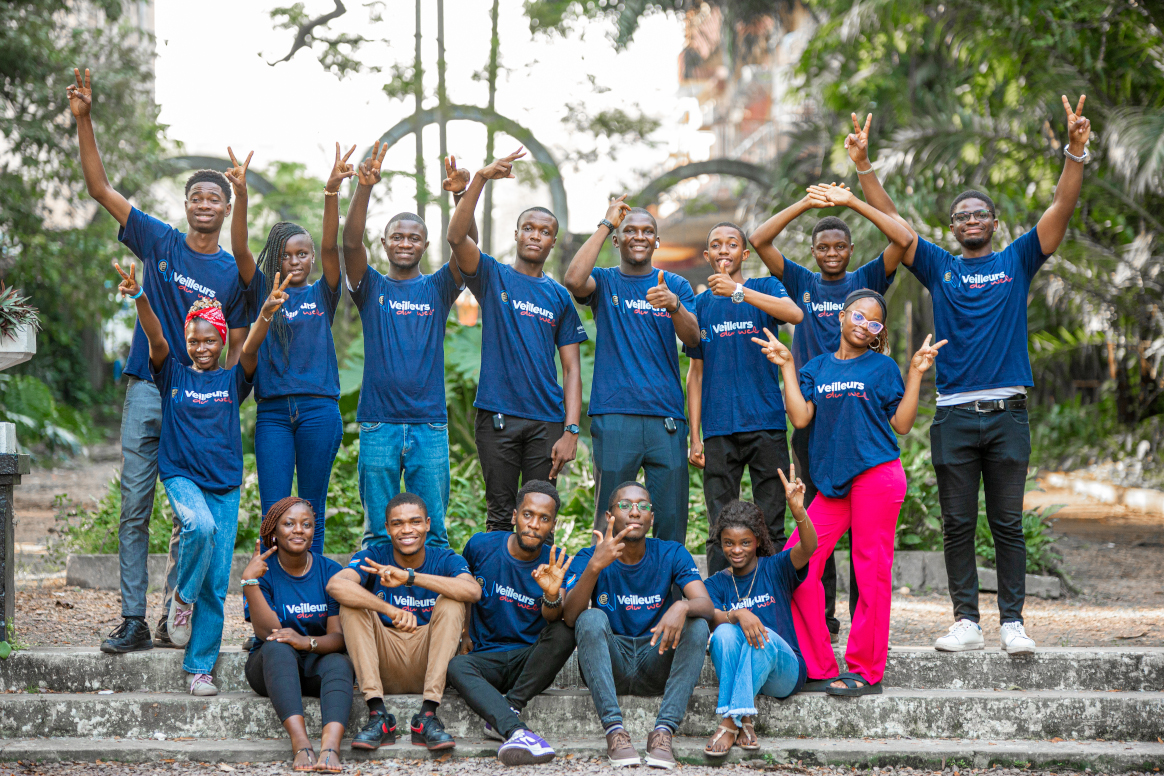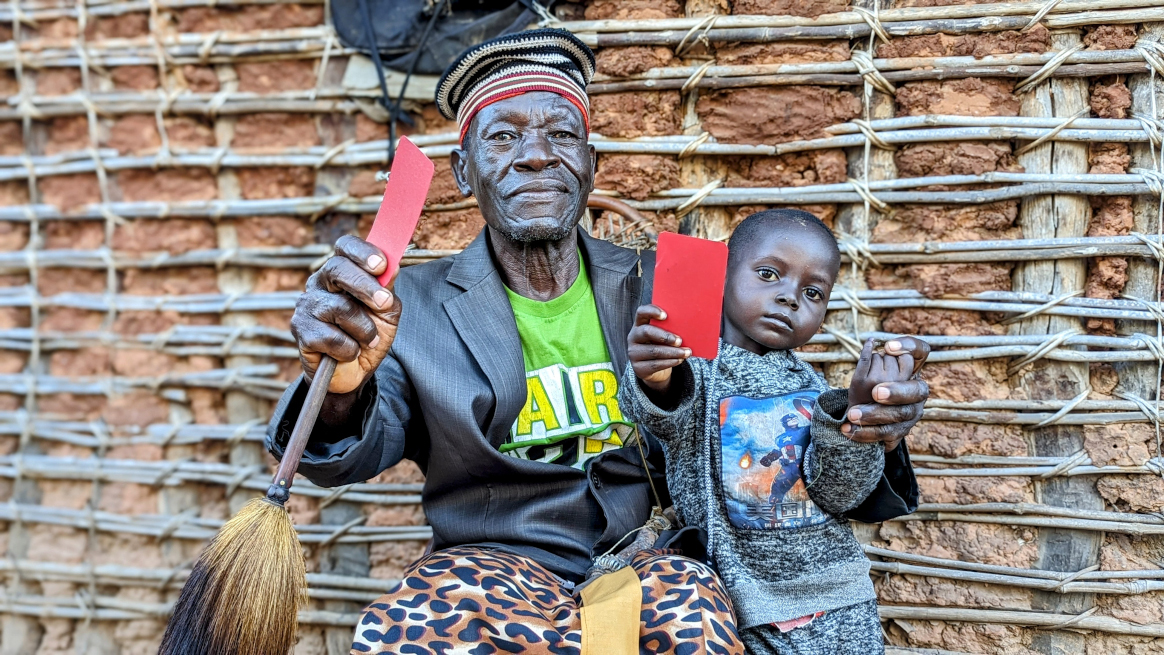
Goal!!! The ball streaked past the goalkeeper’s outstretched hand, nestling into the top right corner, sending the stadium into a frenzy of euphoria. This remarkable 82nd-minute strike by left-back Arthur Masuaku propelled the Democratic Republic of the Congo (DRC) to a 3-1 victory over Guinea, securing their spot in the semi-finals of the 2024 Africa Cup of Nations (AFCON) in Cote d’Ivoire earlier this year. Despite their subsequent loss in the semi-finals, the DRC remains one of Africa’s most successful teams, having won the AFCON twice in the past.
Like many countries in the continent, soccer in DRC is more than just a sport – it’s a passion that bridges generations. Leveraging this fervour, the country embarked on a unique initiative to combat a more insidious foe – the variant poliovirus (cVDPV), which has afflicted over 750 children with paralysis in the last three years alone. In August 2023, the Ministry of Health, in collaboration with UNICEF and partners of the Global Polio Eradication Initiative, kicked off the ‘Red Card against Polio’ campaign. The six-month campaign till February 2024 aimed at garnering widespread community support for childhood vaccination to ‘kick polio out of DRC’ and protect children from other vaccine preventable diseases.
“In soccer and many other sports, a player receives a red card for committing a nasty foul against the opponent, and she or he will not be allowed to play for the rest of the game. We are applying the same concept in this campaign – we will not allow polio to play with the lives of our children,” said Dr. Elizabeth Mukamba Musenga, Coordinator of the National Polio Emergency Operations Center (PEOC) in Kinshasa.

A nationwide community focused campaign
The ‘Red Card Against Polio’ campaign employed a comprehensive approach to engage communities across all 26 provinces of the Democratic Republic of Congo (DRC). A mass media strategy utilized over 100 national television and community radio stations to broadcast accurate information about polio, urging all Congolese to support child vaccination efforts. Additionally, the campaign incorporated a digital component, encouraging users across social media platforms to post pictures of themselves displaying a ‘red card’ in solidarity with the cause. With the assistance of over 500 web fact checkers, and social media influencers, the campaign successfully amplified accurate information online while dispelling myths and rumors surrounding vaccination.
The campaign enlisted the support of over 1,000 influential personalities, whose endorsement was pivotal to its success. Religious leaders, traditional chiefs, health professionals, community leaders, women’s and girls’ groups, young people, as well as celebrities from the arts, culture, and sports sectors, all united their voices in urging the populace to display the ‘red card’ and join forces to eradicate polio from the country.
A key and innovative component of the campaign and overall polio eradication efforts in DRC has been the mobilization of young volunteers known as U-Reporters. They use public spaces like markets, transport stops, and bus stations to share accurate information, dispel rumors, and identify children without complete vaccination records. Their dedication stands out as they work without pay, motivated by gamification and positive deviance techniques. Their altruistic actions showcase the positive influence grassroots initiatives led by committed individuals can have on public health.

Revolutionizing the fight against polio
“The ‘Red Card Against Polio’ is an action to mobilize and commit everyone against polio with glowing results. In addition to involving new actors such as associations of paediatricians, nurses and midwives, leaders of faith-based religious organizations, women and girls’ leaders, U-Reporters, “web watchmen”, the campaign has made it possible to reach more than 45 million Congolese men and women with key messages for the eradication of polio in the DRC,” said Grant Leaity, the UNICEF Resident Representative in the DRC
This concerted effort is revolutionizing the fight against polio in the country. The campaign has helped maintain a 90% awareness level among parents regarding polio vaccination dates and has contributed to vaccinating over 25 million children under the age of five during the nationwide polio campaign in November 2023.
The ‘Red Card Against Polio’ campaign will continue its impactful journey in the DRC in 2024, supporting the ‘Big Catchup’ campaign aimed at reaching zero-dose children. Additionally, it will align with a national forum of women leaders dedicated to advancing polio eradication and strengthening routine immunization efforts.
By Miraj Pradhan, UNICEF Polio



